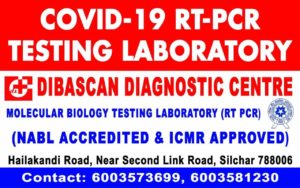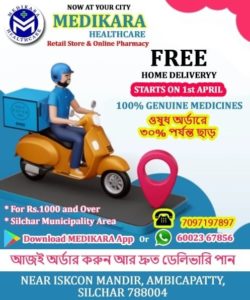India & World UpdatesHappeningsBreaking News
Govt issues guidelines regarding precautions to be observed by schools to combat ill-effects of heat-wave

May 11: The Union Ministry of Education today issued following guidelines regarding precautions to be observed by schools to combat the ill-effects of the heat-wave.
- Modification in School timings and daily routine:
- School hours may start early and get over before noon. Timing may be from 7.00 AM onwards.
- Number of school hours per day may be reduced.
- Sports/ other outdoor activities which expose students directly to the sunlight may be appropriately adjusted in the early morning.
- School assembly should be conducted in covered area or in classrooms with reduced timing.
- Similar care may be taken during dispersal after school is over.

2. Transportation:
- School bus/van should not be over-crowded. It should not carry students more than the seating capacity.
- Drinking water and first aid kit should be available in the bus/van.
- Students coming to school on foot/ bicycle should be advised to keep their head covered.
- Parents should be sensitised to pick-up the students themselves, to the extent possible, to avoid public transport and minimise their time out in the sun.
- School bus/van may be parked in a shaded area.

3. Hydration:
- Students may be advised to carry their own water bottles, caps and umbrellas and use them when out in the open
- School should ensure availability of sufficient potable water at multiple places preferably at temperature lower than that of surroundings.
- Water cooler/ earthen pots (pitchers) may be used for providing cold water.
- In every period, teacher should remind students to sip water from their water bottles.
- While going back home, schools must ensure that students are carrying water in their bottles.
- Students should be made aware of the importance of proper hydration to combat the heat wave and advised to drink sufficient water at regular interval.
- With increased hydration, use of washrooms may increase and schools should be prepared for it by keeping the washrooms hygienic and clean
 4. Food and Meals:
4. Food and Meals:
PM POSHAN:
- Heat can spoil food therefore hot-cooked meals under PM POSHAN must be served hot and fresh. In charge teacher may check the food before serving.
- Children carrying tiffins may be advised not to carry food that can turn stale quickly.
- Canteens in schools should ensure that fresh and healthy food is served.
- Children may be advised to have light food during lunch/tiffin.
5. Comfortable classroom:
-
- School should ensure that all fans are functional and that all classrooms are properly ventilated.
- Availability of alternate power back up may be arranged, if possible.
- Curtains/blinds/newspaper, etc. may be used to stop the sunlight entering directly into the classroom.
- If any local traditional practices are being followed by the school to keep the surroundings cool such as ‘khus’ curtains, bamboo/ jute chiks etc., they may be continued.
 6. Uniform:
6. Uniform:
- Students may be allowed to wear loose and light coloured cotton material dress.
- Schools may relax norms regarding uniform such as neck ties.
- Canvas shoes may be allowed instead of leather shoes.
- Students may be advised to preferably wear full-sleeve shirt.
7. First-Aid facilities:
- Sachets of ORS solution, or salt and sugar solution to treat mild heat-stroke should be readily available in the schools.
- Teaching and non-teaching staff should be trained to provide first aid to students in case of mild heat-stroke
- Schools must ensure quick access to nearest hospital/ clinic/ doctor/ nurse, etc. in case of heatstroke.
- Essential medical kits should be available in school.
8. Do’s and Don’ts for students:
- Do’s & Don’ts regarding heat wave should be displayed at prominent places in the school. These may include the following:-
Do’s:
-
- Drink sufficient water- even if not thirsty
- Use ORS (Oral Rehydration solution), homemade drink like lassi, torani (rice water), lemon water, butter milk, etc. to keep yourself hydrated.
- Wear lightweight, light coloured, loose, cotton clothes.
- Cover your head by using cloth, hat or umbrella, etc.
- Stay indoor as much as possible
· If you feel faint or ill, see a doctor immediately

Don’ts:
- Do not go outside on an empty stomach or after consuming heavy food
- Avoid going out in the sun, especially in the afternoon if not required
- Avoid strenuous activities when outside in the afternoon
- Do not go outside barefoot
- Do not eat junk/stale/spicy food
9. Exam Centres::
- Children may be allowed to bring their own transparent water bottle in the examination hall.
- Examination centres should ensure availability of potable drinking water which is easily accessible to the candidates at the centres.
- Examination Centres should ensure that the candidates are promptly supplied water when asked for at their seats in the examination hall
- Examination halls may be provided with fans.
- Students waiting area at the examination centre may be in a shaded/covered area with provision of water.
- Linkage of examination centres should be made with local health worker and medical centres for any emergency.
10. Residential Schools:
In addition to the above, residential schools may take the following additional measures:
- Essential medicines for common ailments related with summer season should be available with Staff Nurse.
- Students may be made aware regarding prevention of heat stroke.
- Windows in the dormitories should be provided with curtains.
- Lemon, butter milk& seasonal fruits with high water content should be included in the diet.
- Spicy food should be avoided.
- Continuous availability of water and electricity should be ensured in classrooms, hostels and dining hall.
- Sports and games activities should be conducted in the evening.




